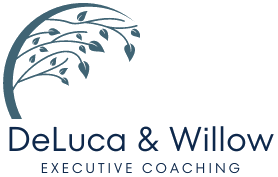I’m smart, but not SMART-ing?
Career Insights from a former Googler
Since it’s January, I want to remind you that you are smart! I know you fully grasp the notion of goals as the ‘juice of life’, as one of my teachers, Dr. Matt James, likes to call them. They capture what you are about and what you want to create! I shared in a former blog post the importance of having an AIM and an end goal. A career AIM (capitalizing for importance) is like a business vision. It answers the question(s) what and who do you want to become and why is it important to you? It sets a defined direction. If you get stuck on the word ‘career’, substitute life purpose. I like to tell my clients it’s like your North Star. It’s always there, you can navigate by it, it hardly changes. An AIM with a defined career end goal builds momentum.
It’s helpful to write your career end goal in present tense and narrative form, including many of the aspects of a business strategy like timing, specific details, measures. A simple way to remember this is the SMART acronym. SMART goals came from research that began in the 60s with Dr. Edwin Locke and Dr. Gary Lantham. Others have added the importance of the mindest, both conscious and unconscious, in goal work, like Richard Bandler and John Grinder founders of Neurolingusitic Programming (NLP). SMART stands for:
S = Simple and Specific
M = Measurable and Meaningful to me
A = Achievable, As if Now, All Areas of my life
R = Responsible / Ecological, Realistic
T = Timed and Toward what I want
Today, is brought to you by the letter ‘S’ (and for the Seasme Street aware, you’ll get that reference).
S stands for Simple and Specific
Ok, when I first starting working with the SMART goal process, I really struggled with how can something be simple and specific? To me, I equate specific with details, a whole lotta details, which could be considered the opposite of simple. I finally got around this by looking at simplicity differently. Simple means easily understood or done. I challenged myself to write ‘what’ I wanted for my career end goal in a three word sentence. It was tough. I think complexly. Brain was perplexed. Frustration was high. Then it dawned. I was writing. It was freeing. Writing was simple. Complexity wasn’t needed. I loved it! It worked beautifully. Less is more. Point is made? You got it. Specific can be simple, simple can be specific. Here’s mine: Successful Business Coach.
Of course you round out the details with the remaining SMART goal process steps, so don’t fret, we’ll unpack those steps in future blog posts. And, for those that thrive on the details, you will get that need met, I promise. Details matter and they serve a key purpose. How we capture those details is equally important. The language we use needs to be present tense and full of purposeful, clear and specific words. Why? The unconscious mind is our goal setter, it needs specificity. One of my favorite examples is from one of my teachers, Dr. Matt James. “I’ve made more money”. Seems specific, yes? If we didn’t specify further, here’s what could happen. We see a dime on the street, pick it up, and to the unconscious mind we met the goal of making more money. You are $.10 richer than you were a second ago. Check! Then we proceed to get frustrated because we don’t see our income double in 24 months, which is what we intended.
I hope you found my insights on the S in SMART goals helpful. As adults we spend the bulk of our waking hours ‘at work’. We only have a finite amount of time on this planet, and you can choose how to spend that time. I wish you much success on your career quest. Yours in balance, learning, growth and harmony. – Melissa DeLuca, CEO



